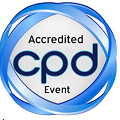Karina Gin
National University of Singapore, Singapore
Title: Antibiotic resistance in urban environmental waters
Biography
Biography: Karina Gin
Abstract
In recent years, the emergence of antimicrobial resistance has drawn heightened global concern because of the severe ramifications on the treatment of microbial infections. In particular, the issue of antibiotic resistance arises due to the overuse and misuse of antibiotics in both developed and developing countries. Bacteria develop antibiotic resistance in the presence of residual levels of antibiotics and these antibiotic resistant bacteria in turn, are able to spread their resistance to other bacteria through mechanisms such as horizontal gene transfer, mediated by mobile genetic elements (e.g. plasmids, integrons) or co-selecting agents such as biocides and toxic metals. There is a worrying trend that pathogens are developing antibiotic resistance to a degree where last resort antibiotics are no longer effective. This, in turn, has severe implications on public health and healthcare costs. In an effort to better understand the rising levels of antimicrobial resistance, surveillance studies have been undertaken to explore the occurrence of antimicrobial resistance in both clinical and natural environments. Implementing such initiatives through assessing the types of antibiotics used, antibiotic resistant bacteria (ARB) present and associated antibiotic resistant genes (ARG) in microbiomes enables better understanding of the impact of antibiotics and the growth of antibiotic resistance, especially for last resort antibiotics. Aquatic environments harbour diverse freshwater bacterial communities which may be subjected to anthropogenic pressures, while domestic wastewaters receive direct loads of antibiotics and pathogenic bacteria from human excretion. The nature of these environments allows them to function as hotspots for resistance through the selection of ARB and circulation of ARG through stimulation of horizontal gene transfer between members of the microbiome. In this keynote, I will present findings from our studies of antibiotic resistance in diverse environmental waters in Singapore, ranging from hospital effluents, surface waters and treated effluents, with specific reference to the detection and occurrence of antibiotics, antibiotic resistant bacteria, antibiotic resistant genes and resistomes. Such knowledge would be needed to assist in the management and control of antimicrobial/antibiotic resistance and ultimately, the protection of public health.

